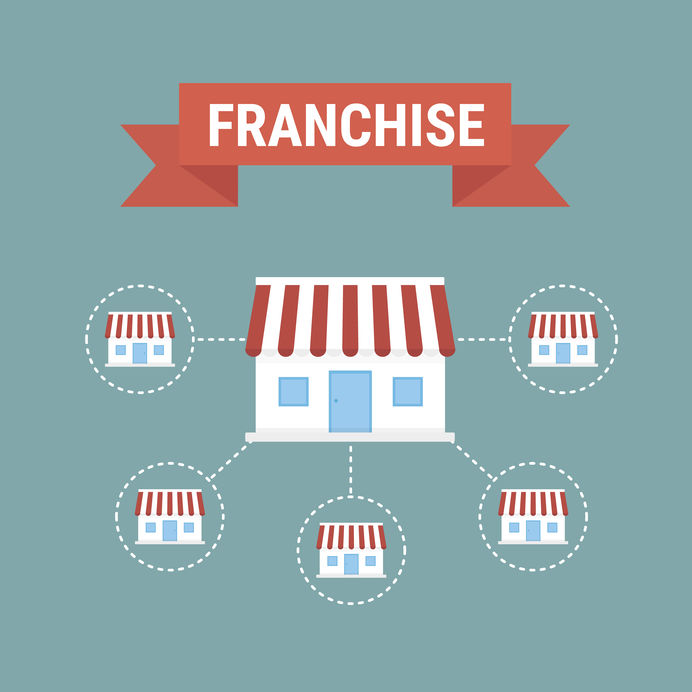Oftentimes people use the words dealer and franchise interchangeably, however, there are notable differences between the two.
Franchises are agreements between a brand owner and another party to use a certain brand. This comes with the benefits of obtaining products, services, and support from the franchisor. Under a franchise, the franchisee is usually obligated to follow a set style for the store which includes the furnishings given to them and signs. There are three categories of franchises, all with example brands you may be familiar with.
First, there are product-distribution franchises which are also known as traditional franchising. This franchising concept is an outlet for products. This concept is comparable to supplier-distributor relationships and is also often used for larger products such as cars. Some big-name brands that use this concept of franchising are Coca-Cola and the Ford Motor Company. Although not the most popular, this concept of franchising represents the highest percentage of total retail sales.
Next, there are management franchises which are also known as system franchises. Under this concept, a franchisee is authorized to conduct business according to an elaborate system developed by the franchisor. The focus under this concept is the franchisee focuses on managing the franchise and allows the franchisee to implement their success strategies. The focus of the franchisee is on developing the business as well as business oversight and management. Some famous examples of this concept include certain hotel companies like Hilton and shipping companies like the UPS Store.
Lastly, there are business-format franchises also known as process or manufacture franchises. Under this concept, franchises provide the franchisee with critical information on how to run the business. This concept is also what most people refer to as the typical franchise. A franchisee gets the rights to trademarks, trade names, and business practices. Additionally, under this concept, the franchisor is heavily involved in the business and provides guidelines as well as expectations that the franchisee must comply with. One major benefit this concept has to offer is that franchisees receive support, advice, and training from the experienced franchisor. This franchise type is the most popular type chosen by franchisees. Some of the most well-known examples of this type include Dunkin’ Donuts, KFC, McDonald’s, and Starbucks.
Dealers, on the other hand, work as retail distributors. Unlike a franchise, dealers have more independence when it comes to design, availability of products, etc. Mostly, dealers have the logo and name of the parent company and offer the same products. Dealers do not make their products but instead, they help in the sale and distribution of products from another organization. Dealers often enjoy the advertising from their parent companies and receive training from them as well. The most famous example of a dealer is car dealerships.
Which Is Better Franchise or Dealership?
There is no right or wrong answer nor is there a set position on which is better. The answer to which is better depends on personal preference, as there are many advantages to both.
Franchises have the advantage of proven business strategies. Additionally, plenty of customers have already heard of the franchise name and thus there is not as strong of a need to advertise—saving costs. Franchises also have the advantage of being “turn-key” operations, which means as soon as a franchisee receives the key to the store, they will begin to make money. Another great benefit for franchisees is the hands-on training and support from the franchise.
Dealerships also have their own unique advantages. Depending on what you like, dealerships provide the benefit of more flexibility. Unlike a franchise, dealers can provide their own business strategies. Dealerships tend to be a better choice for entrepreneurs who have a business mindset and know how to grow and succeed in building a business. The freedom of choice is a major advantage to dealers.
Takeaway
Whether you prefer to open a franchise or a dealership depends on personal preference. To sum up, franchises provide more of a strict-to-follow business model and will provide styling requirements for stores as well. Franchises also have the benefits of providing proven business strategies as guidance and being “turn-key” operations. On the other hand, dealers have more leeway in choosing how to conduct their business operations and are not usually provided many strict guidelines in all matters of their store.








